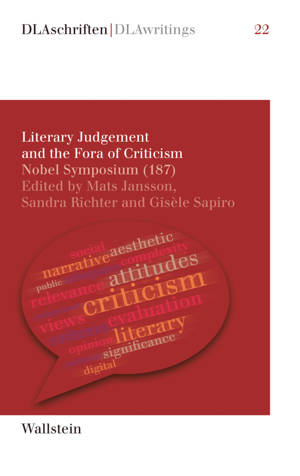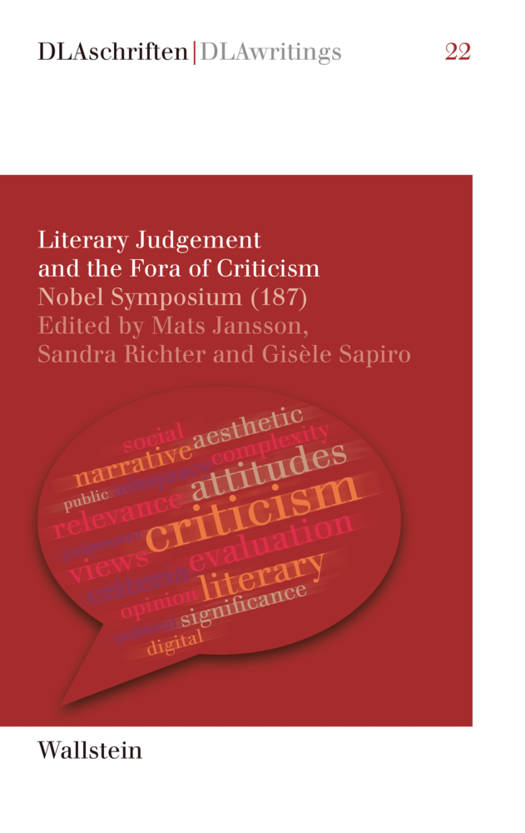
Bedankt voor het vertrouwen het afgelopen jaar! Om jou te bedanken bieden we GRATIS verzending (in België) aan op alles gedurende de hele maand januari.
- Afhalen na 1 uur in een winkel met voorraad
- In januari gratis thuislevering in België
- Ruim aanbod met 7 miljoen producten
Bedankt voor het vertrouwen het afgelopen jaar! Om jou te bedanken bieden we GRATIS verzending (in België) aan op alles gedurende de hele maand januari.
- Afhalen na 1 uur in een winkel met voorraad
- In januari gratis thuislevering in België
- Ruim aanbod met 7 miljoen producten
Zoeken
Literary Judgement and the Fora of Criticism
€ 19,95
+ 39 punten
Omschrijving
Who decides what good literature is? And in which spaces are these decisions made in a digitized world?Literary judgement is the starting point for the evaluation, selection and even canonization of a literary work. In the 18th century, educated citizens exchanged ideas, formed public opinion, and promoted common narratives in debates about literature. Today, criticism is shaped in many diverse public spheres and sub-spheres, operating in an economy regulated by attention and in a globalized book market. What does this mean for the roles of critic, author, and reader?»Literary Judgement and the Fora of Criticism« addresses questions relating to the forms, functions, and significance of literary judgement; the conditions and consequences for criticism in the current media landscape; the medialization of criticism as review and its rhetorical and generic effects; the ascription and dissemination of literary value for a growing but diverse global readership; the implications and consequences for writer, critic, and reader of the digitization of criticism.With contributions by: Amit Chaudhuri, Phillipa Chong, James English, Florencia Garramuño, Richard Jacquemond, Mats Jansson, Christopher Odhiambo Joseph, Rebecka Kärde, Daniel Kehlmann, Zóltan Kulcsár-Szabó, Camille Laurens, B. Venkat Mani, Laura McGrath, Mark McGurl, Ronya Othmann, Irina Prokhorova, Sandra Richter, Lionel Ruffel, Gisèle Sapiro, Zeruya Shalev, Galin Tihanov, Juan Gabriel Vásquez, Magnus William-Olsson and Xu Xi.Der Band erscheint vollständig in englischer Sprache.
Specificaties
Betrokkenen
- Uitgeverij:
Inhoud
- Aantal bladzijden:
- 220
- Taal:
- Engels
- Reeks:
- Reeksnummer:
- nr. 22
Eigenschappen
- Productcode (EAN):
- 9783835356924
- Verschijningsdatum:
- 6/01/2026
- Uitvoering:
- Paperback
- Afmetingen:
- 140 mm x 222 mm

Alleen bij Standaard Boekhandel
+ 39 punten op je klantenkaart van Standaard Boekhandel
Beoordelingen
We publiceren alleen reviews die voldoen aan de voorwaarden voor reviews. Bekijk onze voorwaarden voor reviews.








